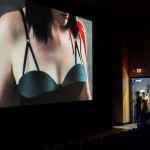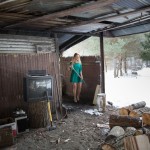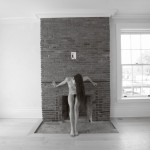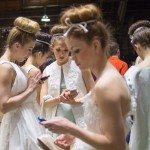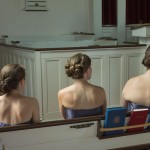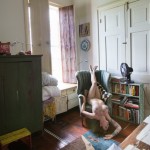Tags
About 1-3 times a year (on average), I submit photos to juried photography exhibitions. Although I’ve broken through on occasion, my record of success is pretty dismal (at least to me). Especially when you have to pay entry fees, the experience is definitely a downer…just rejection (with the underlying message that “your work isn’t as good as the work from the 40-50 photographers we selected”) and a loss of money that could have been spent on something useful, like groceries.
Perhaps the worst part is seeing work selected that you wouldn’t even consider successful–i.e., you wouldn’t even consider submitting some of the ones that end up “winning”.
The latter leaves you with a sense of powerlessness, like you can’t trust your own artistic sense. It makes you wonder if you should be posting all of your photos at a photo sharing site like Flickr, and only submit to photo contests the photos that get the most “favs”.
But this takes the basis for the evaluation of your photographs out of your own hands and puts it into the hands of a bunch of (mostly) strangers; it’s effectively “crowd-evaluation”.
I believe an important part of an artist’s growth is making their own decisions about their artistic successes and failures. If you base the evaluation of your work on crowd response (e.g., Facebook “likes”), you’ve lost. You’re stuck being a crowd-pleaser instead of seeking and experiencing authentic artistic growth.
True art is communication. Much of what passes as art is just visual gimmickry. Visual gimmickry can be very popular, but it doesn’t really communicate anything..at least not anything of much substance. Also, certain kinds of photos become fads and then all the photos you see are copies with slight variations; these often do well in juried exhibitions and contests…and drives me absolutely bonkers.
Ultimately, juried exhibitions are just another source of feedback, not so different from the crowd of viewers seeing your work at Flickr, etc. We assume jurors are better judges of work than the many users and contributors to photo sharing websites, but in terms of what?
Many photography contests are judged by photographers who have experienced at least some “success” as judged by the fine art photography world. But what is someone who has experienced success going to judge as “good”? Work that looks like theirs? Work that is very different from theirs? Work that they just happen to like? Work that doesn’t in any way compete with the work they do? It’s unclear to me.
However, if I’m not letting Flickr tell me which of my work is best (because I don’t want to give Flickr or any photo-sharing website) that sort of power or “say” in the artistic work I pursue, is it any different letting jurors of photo contests/exhibits tell me if or which of my work is actually any good?
Here are two problems I have with the latter:
1) My ultimate “customer” (say, if I want to make money with art) is the collector, not other photographers or people who run contests or competitive exhibits.
2) “Artistic success” is doing work that is meaningful to you and which may find an audience willing to buy it. Trying to generate or emulate work that appeals to people involved in contests (whose true motives are typically unclear) doesn’t mean you’re doing meaningful work or that any of your work will actually sell. You may get some “advertising” out of it–which is usually not a bad thing–but even that is pretty short-lived.
In the end, the message you take from being accepted or rejected by a juried exhibition is up to you. The underlying meaning is often assumed to be “your work is good” or “your work is not good”. However, I don’t have that much confidence in the process to believe either verdict, even when the verdict has been in my favor.
I’d like to finish with a gallery of images I’ve submitted recently (from two different submissions) which fit the themes of the calls for entry, but were (as they must be) my interpretation/s of what fit best.
These are images I have taken that I really like; the jurors for the calls for entry obviously didn’t like them so much…or thought them “bad fits” to the exhibition themes for which they were acting as jurors. (Themes are typically pretty abstract, but I suspect jurors come up with specific working interpretations that may or may not ever be communicated to anyone else.)
Fortunately, the Internet makes it possible to see & hear art that goes beyond the constricted exposure offered by long established and self-proclaimed gatekeepers.
- Wedding Reception Garden (2012)
- Science Friction (2013)
- Inside Out (2013)
- Fireplacement (2013)
- Special Delivery (2013)
- Smartclones (2013)
- Bridesmaids (2012)
- Circus Escape (2012)
- Living Room Stage (2013)
- Inversion (2013)
- Kitchen Checkers (2009)
 Visit Michael's Art Photography Portfolio at SaatchiArt.com! |



